Speaking your home language with your autistic child isn’t just possible—it can be one of the most powerful ways to support their development, identity, and family connection. Despite outdated advice that still circulates in some clinical settings, research now shows that raising a bilingual child with autism does not delay speech or language development—and may actually bring cognitive and social benefits.
For many families, especially immigrants, bilingualism isn’t just a preference—it’s essential. Losing the home language can create painful distance between a child and their parents, grandparents, and culture. For children with autism, who already face communication and social challenges, removing the home language can mean fewer chances to connect with loved ones and participate fully in family life.
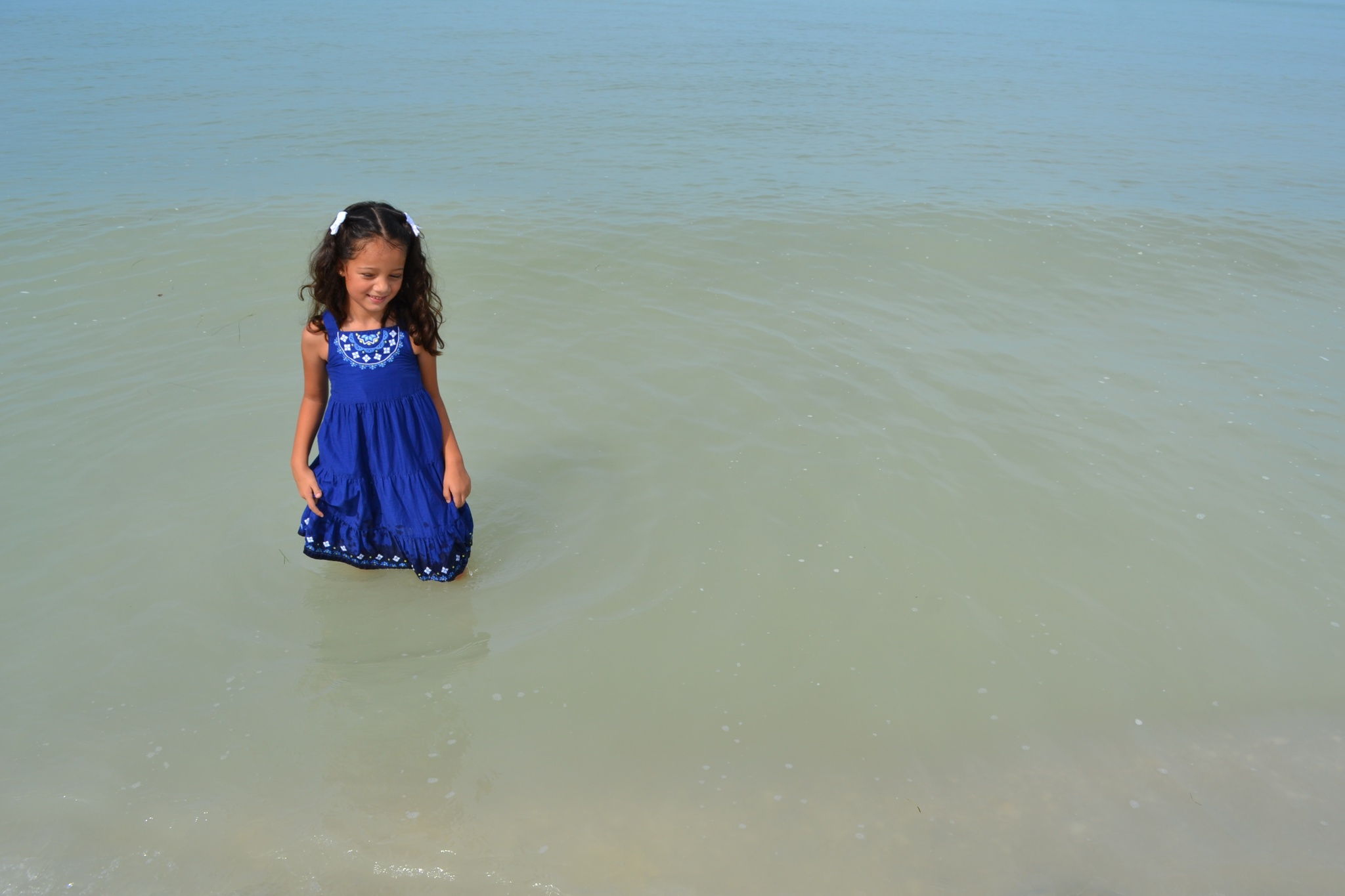
Raising a Bilingual Child With Autism: What Worked for Us
When we started this journey more than 15 years ago, there wasn’t much research to back that up. My daughter was just turning 3, and had been recently diagnosed with autism, sensory processing disorder, and motor planning difficulties. She spoke only a few words in Spanish, and her pediatrician told us to stop speaking Spanish at home. But my husband and I knew in our hearts that this advice didn’t reflect what was best for our child—or for our family.
We continued to speak Spanish at home, and it turned out to be the best decision we ever made. Today, my daughter is 20. She’s fully bilingual—she reads, writes, and speaks Spanish and English—and that ability has helped her stay close to our family in Guatemala and to her roots. It has shaped her sense of self and identity in a way that English alone never could. As we prepare to move to Spain next year, I’m more grateful than ever that we didn’t give up on our language, even when professionals told us to.
At the time, we were guided by instinct. Now, the research has caught up—and the evidence is clear: autism and bilingualism are not mutually exclusive. In fact, children on the spectrum often thrive when given access to both languages they encounter at home and in their communities.
Can Autistic Children Be Bilingual? What the Research Really Says
For many years, parents of autistic children were told to stick to just one language. Professionals—often with good intentions but outdated training—warned that bilingualism would confuse children with autism or slow their language development. But today, a growing body of research says otherwise.
Multiple studies from the past decade have confirmed that bilingual children with autism can learn and use two languages without negative effects on speech, comprehension, or overall development. In fact, some research suggests that being bilingual may even offer benefits in key areas where autistic children often struggle—like attention, cognitive flexibility, and social connection.
A 2024 study published in Frontiers in Psychology examined Spanish-English toddlers with autism and found no evidence that bilingual exposure led to language delays. In fact, children exposed to both languages showed comparable or even stronger performance in social communication and receptive language compared to monolingual children with autism.
Other studies have echoed these findings:
-
A 2020 meta-analysis found that bilingual autistic children perform equally well—or better—than monolingual autistic children on tasks involving executive function and flexibility.
-
Research from UTRGV (University of Texas Rio Grande Valley) highlights how maintaining the home language is not only safe but also vital for family bonding and emotional well-being in bilingual families with autistic children.
The bottom line? Yes—autistic children absolutely can be bilingual. And for many families, keeping both languages alive isn’t just beneficial—it’s necessary for maintaining strong relationships and a shared cultural identity.
In the next section, I’ll share more about how we navigated this with our daughter, what helped us along the way, and how bilingualism has supported her emotionally, socially, and academically.
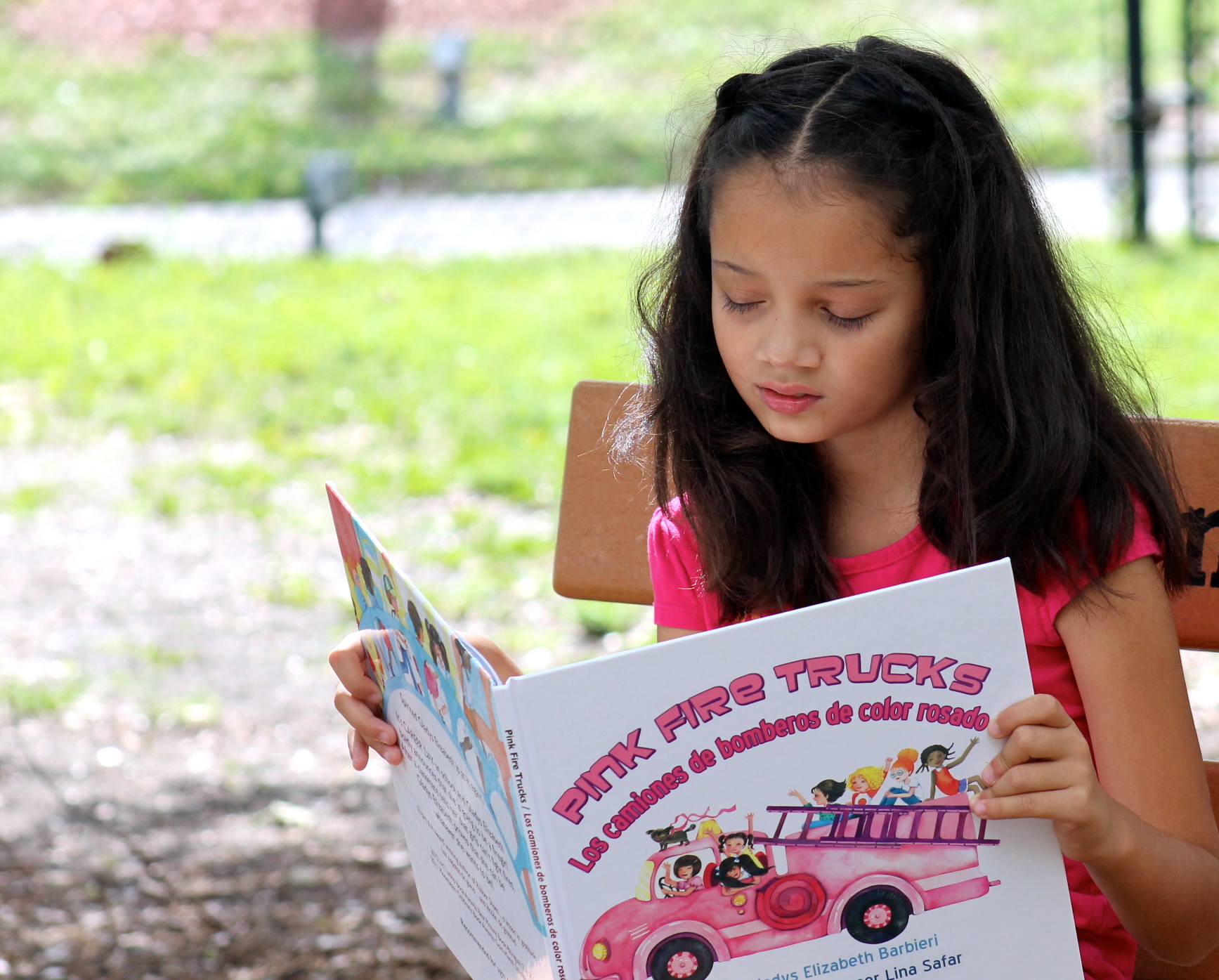
Our Bilingual Journey With Autism: From Preschool to Graduation
When my daughter was first diagnosed with autism at age 3, she didn’t speak much—just a few words in Spanish. We had just moved to the U.S., and she had started preschool in English. Everyone around us—teachers, therapists, even doctors—told us to stop speaking Spanish at home. They said learning two languages would confuse her and make things harder.
But deep down, I knew that didn’t feel right.
Spanish is our home language. It’s how we talk to our family in Guatemala, how we share traditions, and how we connect with each other. We didn’t want our daughter to lose that. So even though we were nervous and unsure, we kept speaking Spanish at home.
It wasn’t always easy. She has sensory processing disorder and a motor planning delay, which made learning any language hard—let alone two. English was easier for her because that’s what she heard at school. Spanish took more effort. The words were longer. The sounds were trickier. And sometimes she’d get frustrated, especially when she couldn’t find the right word and was trying so hard to express herself.
There were moments when she’d have a meltdown. And as a mom, it’s heartbreaking to see your child struggle like that. But instead of giving up on Spanish, we learned how to support her in those moments. We used pictures. We gave her time. We reminded her she didn’t have to get it perfect. And when she felt overwhelmed, we focused on connection first—not correction. (If you’re dealing with something similar, you might find these tips on how to manage an autism meltdown really helpful. They gave me tools I wish I had known about sooner.)
We stayed consistent with our routine: Spanish at home, English at school. Over time, both languages grew. Slowly. Sometimes unevenly. But always forward.
Now, my daughter is 20. She speaks, reads, and writes in both English and Spanish. She talks to her abuelos in Guatemala on video calls. She jokes with her brother in Spanish. And as we get ready to move to Spain next year, I’m so thankful we didn’t listen to that early advice to give up our language.
Raising a bilingual child with autism isn’t always easy. But it’s absolutely possible—and so worth it. Spanish has helped my daughter stay connected to her culture, her family, and herself.
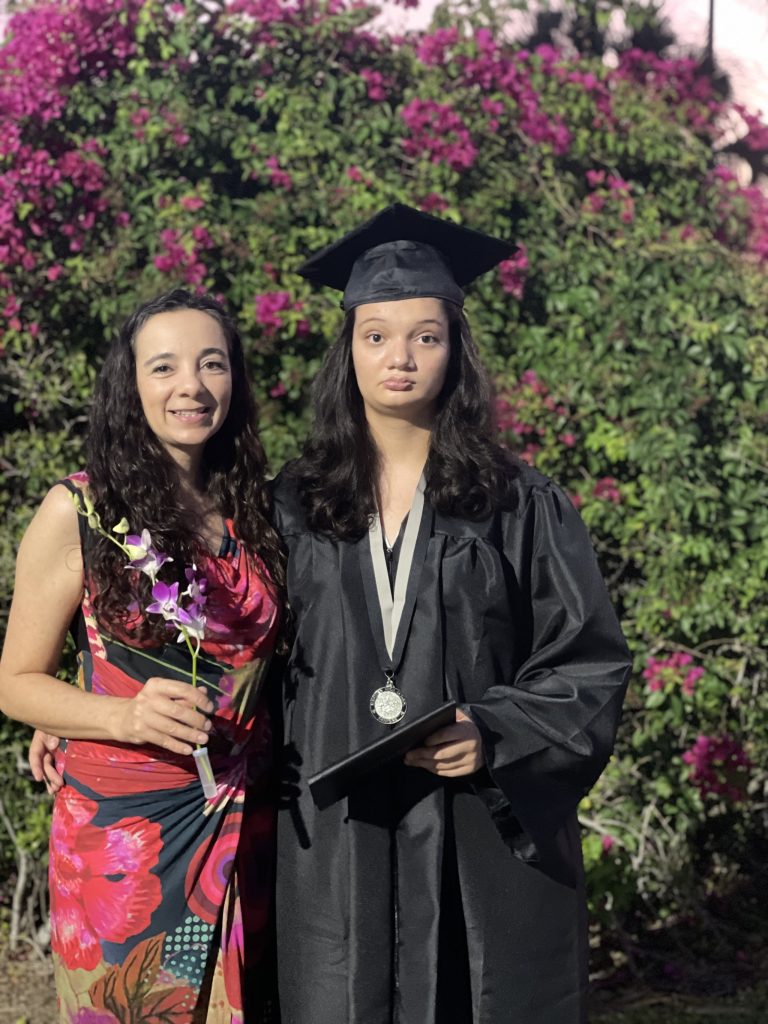
What the Research Says About Autism and Bilingualism
When we decided to raise our daughter to be bilingual after her autism diagnosis, we didn’t have a lot of proof that it would work. We just knew, in our hearts, that keeping Spanish in our home was important. It helped us stay connected as a family. It gave her access to her culture. It made her feel included.
Back then, we were following our instincts. But now? The research backs it up.
In the past few years, more and more studies have shown that autistic children can be bilingual—and that learning two languages doesn’t hurt their development. In fact, it can help.
One study done in 2024 looked at Spanish-English toddlers with autism and found that being exposed to both languages didn’t cause any delays. In some cases, the kids who were learning two languages had better social communication than the kids who only spoke one.
Other studies have shown that bilingual kids with autism may do better in certain areas, like switching between tasks, paying attention, and solving problems. These are all things that can be more difficult for kids on the spectrum—so if learning two languages gives them a boost, even a small one, that’s a win.
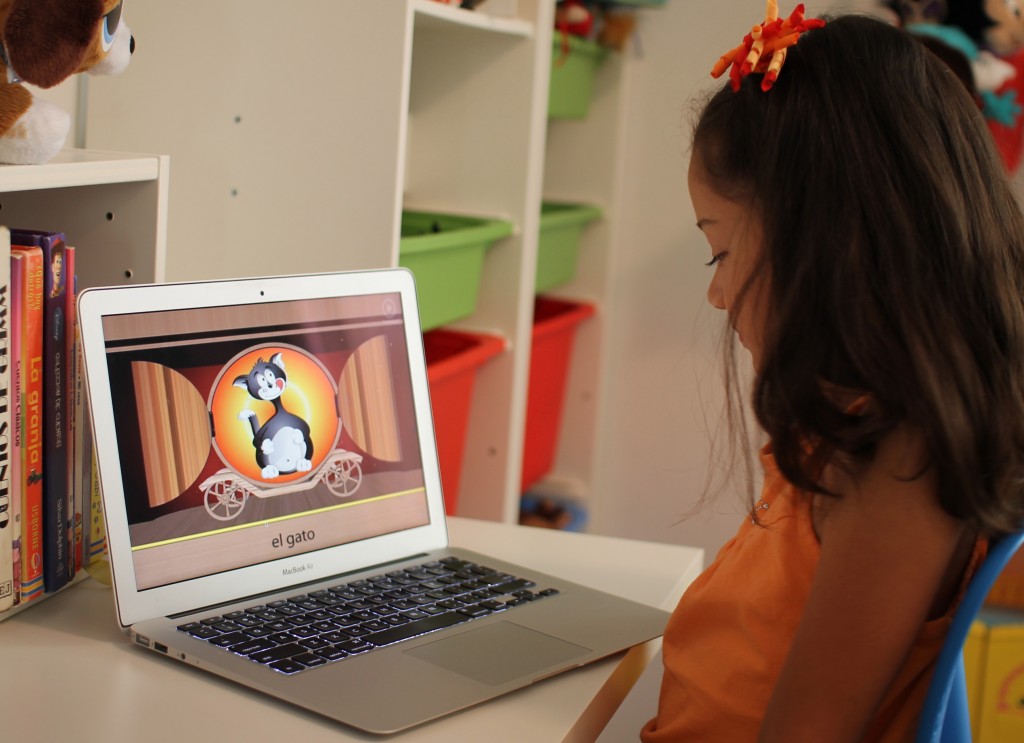
But for me, the biggest reason to raise my daughter bilingual wasn’t about test scores or brain scans. It was about her being able to talk to her grandparents. To feel included at the dinner table. To enjoy her favorite movie in Spanish. To feel proud when she hears someone at the store speaking her language and says, “Mom, they’re speaking Spanish like us!”
That kind of connection matters. And research supports that, too. One study found that autistic kids were more engaged and emotionally connected with their parents when families spoke in their native language. And for immigrant families like ours, keeping your home language alive isn’t just a benefit—it’s a necessity.
So if you’ve ever been told that autism and bilingualism don’t go together, I want you to know: they absolutely can. And more and more experts are now saying what many of us parents already knew—it’s okay to speak your home language with your child. In fact, it’s good for them.
When Bilingualism Feels Hard: Don’t Give Up
I’m not going to lie—raising a bilingual child with autism isn’t always easy. There were moments when I questioned everything. Moments when my daughter would get stuck on a word in Spanish, and you could just see her trying so hard—and then shutting down. And moments when she’d get so overwhelmed that she’d have a meltdown, and I’d think, Maybe it would be easier if we just stuck to one language.
But here’s what I’ve learned: easier isn’t always better.
Frustration is a normal part of language learning—especially for autistic kids, who may already struggle with communication, sensory input, and emotional regulation. But that doesn’t mean they can’t learn two languages. It just means we have to be patient. And flexible. And creative.
We started using visuals, modeling language through play, and giving her lots of space to try—without pressure. If she mixed languages, we didn’t correct her right away. If she used gestures instead of words, that was okay too. And when she had a meltdown, we didn’t see it as a sign that bilingualism wasn’t working—we saw it as a sign that she needed support in that moment.
Meltdowns aren’t failures. They’re communication, too. And learning how to respond with calm, compassion, and tools that work for your child makes all the difference. If you’re facing this right now, here’s a great resource on how to manage an autism meltdown. It helped me learn to respond in ways that actually helped her feel safe and heard.
The truth is, some days were harder than others. There were times when English felt easier for her—and honestly, for us too. But we kept showing up in Spanish, even when it wasn’t perfect. Even when it was messy. Because we knew that sticking with both languages would give her more, not less—more ways to express herself, more ways to connect, more chances to be included.
If you’re feeling unsure, or if people around you are making you doubt your choice, I want you to hear this from someone who’s been there:
You don’t have to give up your language to support your child. You can do both. And it’s so worth it.
Why Language Is About More Than Words: Identity, Culture, and Confidence
For our family, raising a bilingual child with autism wasn’t just about making sure she could talk to her grandparents or order a meal in Spanish. It was about giving her a deeper connection to who she is.
When my daughter hears people speaking Spanish at the grocery store or the library, she lights up. She’ll whisper, “They’re speaking Spanish like us!” And you can tell it makes her feel proud—like she belongs to something bigger. Spanish is part of her story, part of her identity, and part of her confidence.
When she was younger, she’d ask to watch her favorite movies in Spanish. I think she was trying to strengthen that part of herself—just like how she practiced reading in English. Even though Spanish was harder for her (longer words, trickier sounds, more motor planning), she kept trying. Because she wanted to be included in everything happening at home—in conversations, jokes, and family traditions.
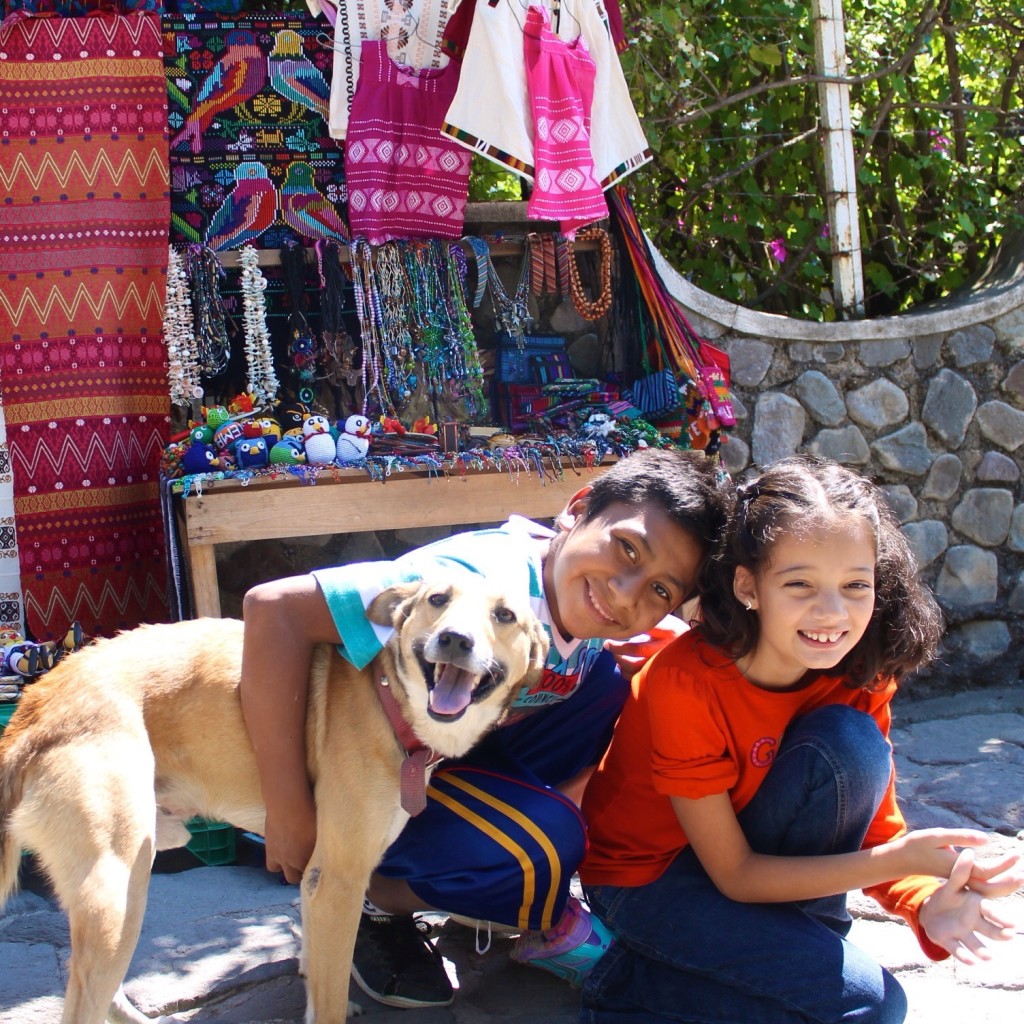
Speaking Spanish has allowed her to chat with her abuelos in Guatemala over video calls—sharing stories about her week and asking about theirs. She connects with them in ways that wouldn’t be possible if we had let go of Spanish when things got hard. We’ve traveled to Guatemala every summer, and she loves being able to speak Spanish not just with family, but with everyone she meets. Being able to communicate confidently makes her feel connected, included, and empowered. It gives her the tools to ask for help, advocate for herself, make new friends and truly explore her culture and her roots.
And now that we’re planning to move to Spain, I see how being bilingual has opened up her world even more. She’s not just “getting by”—she’s stepping into a whole new place with the language and confidence to belong.
That’s the real power of bilingualism. It’s not just about vocabulary or grammar. It’s about belonging. It’s about knowing that your voice matters—in both languages. It’s about giving your child the chance to connect, express themselves, and feel seen.
If you’re a parent wondering whether to keep your home language alive, especially with a child on the spectrum, I hope this reminds you: language is more than just words. It’s love. It’s culture. It’s identity. And it’s absolutely worth fighting for.
FAQs About Autism, Speech Delays, and Bilingualism
Can autistic children be bilingual?
Yes, absolutely. Many autistic children grow up speaking two or more languages. Research has shown that bilingualism does not delay language development in children with autism. In fact, some studies suggest that bilingual autistic children may have stronger attention, flexibility, and communication skills than monolingual autistic children (Frontiers in Psychology, 2024).
Can children with language impairments learn two languages?
Yes. According to a review published in Research in Developmental Disabilities, bilingualism does not negatively affect children with developmental language disorders, including autism, Down syndrome, and specific language impairment (SLI) (ScienceDirect, 2016). In fact, learning two languages can support broader cognitive and social development.
Every child is different, and some kids may need more time or different supports—but being exposed to two languages won’t “hurt” their language development.
Should children with speech delays learn a second language?
Yes, they can—and many do. Children with speech delays may struggle with pronunciation or expressive language, but research shows that learning two languages does not cause confusion or delay development further. What’s important is creating a supportive environment, using tools like visuals or AAC if needed, and giving your child space to learn both languages at their own pace.
For us, Spanish was harder for my daughter, but it was also so important for our family. We used repetition, songs, simple phrases, and everyday routines to help her build both languages without pressure.
Does speaking two languages confuse children with speech delays or autism?
No. There’s no evidence that bilingualism causes confusion—even in children with speech and language delays. A major review in Research in Developmental Disabilities looked at bilingual kids with autism, Down syndrome, and other developmental challenges and found no negative impact from learning two languages (ScienceDirect, 2016).
In fact, maintaining your home language can help your child feel more confident and included—especially when they’re already working hard to communicate.
Is bilingualism harder for kids with speech and language disorders?
It can be—but harder doesn’t mean impossible. Some kids may need more support, especially with articulation, motor planning, or sentence structure. But just like with walking or reading, they can still make progress in both languages.
In our case, Spanish required more motor planning, so it took more effort. But because we stayed consistent, used patience, and created a safe environment for her to speak without judgment, she kept going—and now she uses both languages daily.
Will learning two languages make my child’s speech delay worse?
No. There’s no scientific evidence that bilingualism makes speech delays worse. In fact, taking away a child’s home language can create even more frustration—especially if that’s the language they hear from parents, siblings, or grandparents.
Instead of removing a language, focus on supporting communication in both—whether that’s through gestures, AAC, simple routines, or short phrases. It’s not about speaking perfectly—it’s about building connection and confidence.
Is it better to focus on just one language if my child has a speech delay?
Not necessarily. For many families, especially bilingual households, focusing on just one language means cutting off communication with parents, siblings, or extended family. Research shows that children with speech and language delays can learn two languages, and that keeping the home language actually supports emotional well-being and reduces frustration.
If your child struggles to be understood, it’s okay to use gestures, pictures, or communication devices in both languages. What matters is building connection—not perfection.
Can being bilingual improve social and emotional development in kids with autism or speech delays?
Yes. Studies show that bilingual children with autism and other speech-language impairments may be more socially engaged and feel more emotionally connected when they can use both their home and community languages. A recent study from UTRGV even found that autistic children were more involved in family conversations when they used their home language (UTRGV, 2025).
In our case, Spanish gave my daughter a way to feel included at home. And now that she’s learning Italian on Duolingo for fun, I can see how being bilingual gave her the confidence to believe she can learn more.
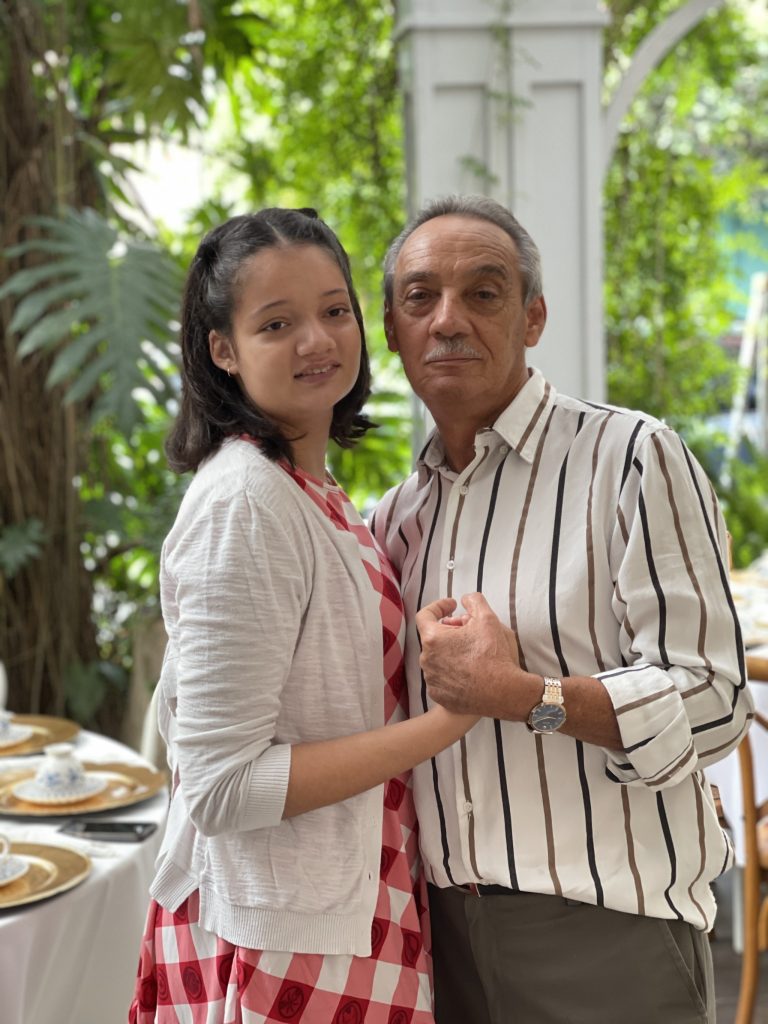
Final Thoughts From a Mom Who Didn’t Listen to the Experts
When my daughter was first diagnosed, I was overwhelmed with advice. Most of it told me what I shouldn’t do—don’t confuse her, don’t speak Spanish, don’t expect too much. But deep down, I knew that giving up our language would mean giving up something bigger: our connection, our identity, and our way of loving each other.
So I didn’t listen.
Instead, we kept speaking Spanish. We stayed bilingual, even when it felt hard. Even when progress was slow. Even when other people doubted us.
And now, more than 15 years later, I can tell you with confidence: bilingualism didn’t hold my daughter back—it helped her grow. It gave her a bridge to her family, to her culture, and most importantly, to herself. It reminded her that she belongs. That she’s capable. That she can do hard things—even things that take time. And bilingualism opened up the world to her. She loves traveling and every time we’re in a Spanish speaking country she feels confident and empowered.

She’s now 20 years old. She’s fully bilingual. And she’s learning Italian, just for fun, because she believes in herself—and in her ability to keep learning. Being bilingual gave her that confidence. It didn’t just help her speak—it helped her shine.
So if you’re a parent standing where I stood, wondering whether to hold on to your home language or let it go… please hear this:
You don’t have to choose between your child’s diagnosis and your family’s language. You can have both.
You can nurture speech, connection, and culture—at the same time.
It’s not always easy. But it is absolutely, completely worth it.
Learn more about the benefits of bilingualism
If you’re parenting a bilingual child with autism or a speech delay, I’ve written more about what helped us, what I’ve learned, and why I believe so strongly in keeping your home language alive. Here are a few articles I hope will support you the way writing them supported me:
-
Spread the Word About the Benefits of Bilingualism – Why I believe every parent should know the truth about raising bilingual kids.
-
Spanish Toolkit for Learning Disabilities – A collection of strategies and resources I put together to support Spanish-speaking kids with learning differences.
-
Common Myths About Learning Two Languages at an Early Age – This one breaks down the misinformation I heard early on—and what’s actually true.
-
The Importance of Keeping your Culture and Language Alive – A piece straight from my heart about why holding on to your language matters so much.
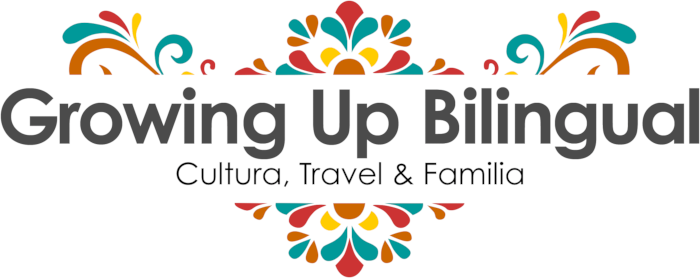


Paula, your journey has been an amazing one and Ariane is all the better for it. She is so lucky to have you advocating for her, following your mommy instincts and doing what you know is best for her.
As a teacher I fully agree with you that speaking to your child in your native language is not only beneficial for them for the future, but beneficial for them right now. In your family you do speak English fluently, but there are many families that don’t, and it is sad to hear that they are being recommended to speak only English, and it must be frustrating for both the parent and the child.
I am glad you are sharing your experiences and I hope that other families take note. Good luck to you on your journey!
Thank you Brandi! All the support from all my wonderful friends makes this possible.
xoxo
Paula
Mi nombre es Viviana y administro el Directorio de Enlaces exclusivos para mamas: “Somos Mamas” que encuentras entrando en http://www.somosmamas.com.ar
Este mail es para comunicarte que tu link fue indexado en mi Directorio… felicitaciones !!!! mas mamas llegaran a tu pagina.
Muchas Gracias !!!
Nota: si quieres que tu sitio sea removido de nuestro Directorio, por favor, contesta este mail pidiéndonoslo. Tu pedido sera resuelto a la brevedad.
I also have a child with autism who speaks English and Spanish. The Special Education teachers advised me to stop teaching him Spanish. Of course, I didn’t listen to them. This year, he is studying Latin. He is amazed of how easy it is for him to learn a new language.
Love your blog!!
I have a 6 year old daughter with Aspergers. My 9 year old son has sensory processing disorder. My son was enrolled in a dual language program from Kindergarten through 2nd grade where he would learn have his day in Spanish and the other half in English. He is now fluent in Spanish and English and my daughter has picked up quite a few words along the way. Since then however, my daughter has been fascinated by other languages and has learned the alphabet in 7 different languages. She knows words in French, Arabic and Russian in addition to the words she already knew in Spanish. Myself, I am monolingual but will fully support both the children’s quest to learn new languages and who knows maybe I will learn some too! Never stand in their way, there is no limit to what they can achieve if given the opportunity!
Thank you for sharing your daughter’s journey with us. As a first generation immigrant and elementary school principal I try to advocate, often against what everyone around me is saying, to provide bilingual education to students with autism. It is the best thing to offer them. We know this from years of brain research.
Thanks for your comment Diana and thank you for supporting bilingualism !! I hope that together we can save many families from giving up on teaching their home language to their children just because they have Autism or a speech delay.
My daughter has pddnos and she was nonverbal until age 2 1/2. Ive spoken to her in spanish since she was born. Now shes 3 1/2 and is verbal, like u said english is alot easier to pronounce. She speaks mainly english. I try to have her speak spanish but its hard for her. Some times when i speak to her in spanish she looks at me as if she doesnt undertand so when i translate it to english then she responds. Do you have any recommendations for me. Its also hard for me to find bilingual books and the ones i do find are too babyish.
Vanessa consistency is key and the most important thing is making Spanish meaningful for her. I used to feel guilty because I felt like I was making it harder for her but it payed off and she is talking and starting to read in Spanish. She still has a lot of difficulty with articulation and she will always have a harder time speaking in English, Spanish or any other language but she loves speaking Spanish now. You really have to just speak Spanish at home and she will “get it”, it might take longer than it would for another child but if it’s important to you it’s worth the extra effort! You are doing an amazing job! You can find a list of bilingual books on my website and I also do reviews and giveaways of books and other educational materials. Look on GrowinUpBilingual.com under the tab BOOK REVIEWS and also under the tab KIDS and you will find a lot of books for both small children and beginning readers. I also have a post of digital books and apps for Kindle Fire/Android (type Kindle Fire on the search box). I would also recommend educational games on the computer, iPad or Kindle Fire/Android in Spanish. There are many websites but I like PetraLingua.com. We also have CDs in Spanish and I play them every opportunity I get (like in the car). Combining language with traditions also makes it more meaningful and I have found that with children on the autism spectrum motivation is key! My daughter would not “get” the concept of time but is obsessed with movies and shows like Disney on Ice so she would see ads about a show or movie opening that had the date on them and she got the concept of time by counting the days to the opening date of the movie or show she had to watch (needless to say we go to a lot of shows and now I have to hide parenting magazines from her so she won’t see the shows coming up as I can’t take her to everything!!). To motivate my children with Spanish we use music (they loves dancing so we dance to music in Spanish), cooking (we cook traditional dishes and I explain they are from Guatemala and they knows in Guatemala people speak only Spanish), movies they likes (we get versions of movies that have a Spanish option and I will tell her there is no English version). Good luck and keep at it!!
Hola … estoy feliz de haber encontrado este articulo, pues mi hija es autistic y logicamente esta demorada para hablar (habla pero no mucho). My suegra e inclusive la Dra me dijeron que no le hablara mas español por que esto la iba a retrasar mas. Yo deje de hablarle español a mi hija y practicamente le hablo solo en Ingles que porcierto no es muy bueno que digamos. Al encontrar este articulo y la experienza personal de Paula me di cuenta que estava yo estaba en lo correcto de quererle enseñar español a mi hija y de ahora en adelante lo hara com mas razon.
Me alegra muchisimo que mi articulo te haya ayudado. Si el Espanol es importante para ti y parte de tu vida familiar hacer el esfuerzo para que tu hija lo aprenda vale la pena. Si necesitas mas articulos o investigaciones al respecto dejame saber y te las envio con mucho gusto! 🙂
Thank you for this article, Paula! I, too, have heard even parents without children with special needs being told to only speak English so as not to “confuse” the child. It drives me crazy!
And yes, I do know Latino children with Down Syndrome and processing issues who are fluent in both languages. Being bilingual has helped them — not held them back! Kudos to you for bucking the trend and teaching your daughter both languages.
By the way, your daughter looks just like my daughter — same hair color and all. 🙂
Gracias Elisa for your wonderful comment! It really means a lot to me to know that there are many people out there who realize how crazy this misguided idea that children get confused when learning more than one language. How old is your daughter?
I honestly think that many people make their children more handicap than they are. Frankly, speaking a child in two languages can only be beneficial, regardless whether your child has a learning disability or not. I think we are still trying to convince the American people than learning two languages is advantageous, so imagine if the child has a learning process!
I come from Spain, and parents over there treat their children with disabilities like they would treat a child without them. There are young people with down syndrome over there with bachelors’ degree. I think anything is possible if we put our hearts into it, we have love, perseverance, patients, understanding, goals….you name it.
Now, I have gone through some major problems myself, and I took care of them naturally. I have learned and understood that diet is very important in a person’s health, that to avoid sugar at all cost is crucial. It is proven how harmful sugar is. I actually saw a difference in my daughter’s attitude when she stopped eating cereal in the morning, and those afternoon snacks that also contain sugar.
I have read about pranic healing, and energy treatment that takes care of autism. There are actually studies done about this. There is also an exercise, easy to perform, I even do it daily for better memory, that helps autistic children. There has been many studies done about what is called ‘ brain yoga’ . I encourage all mothers to look into pranic healing and following a very strict sugar free diet. If you are interested in learning about how to perform this daily exercise, and the name of the book, I will be happy to share it with all of you.
My best regards to all, and thank you Paula for this wonderful site.
Very helpful post. I would like an opinion in which language should the therapy be done for an asd child whose language at home is other than english and going to an english nursery.
Hi Mihaela. In our case our daughter did therapy in English with the therapist but we did a lot of work at home with her in our home language following the therapist’s directions and recommendations.
Delighted to find you and this site. We also were pressured to make our son monolingual after he was diagnosed as being on the spectrum. He is 8 now, and doing fine in both languages (English and Japanese). As a result of those experiences, I began researching the subject, and am now working with a Japanese group study examining the effects on linguistic and cognistic development of a bilingual environment.
I wish your daughter and you the best of luck on your journey.
Eugene
ps. Here’s a link to some articles about my son’s story: http://bilingualmonkeys.com/interview-with-a-father-raising-a-bilingual-child-with-autism-2/
Thanks Eugene! Wishing you the best of luck in your bilingual journey with your son. Will be sure to check out your story in article in bilingual Monkeys.
Hello
I work in an ASD class in Dublin. As many others capital cities, Dublin is blooming with people around the world. It is incredible how hard is for parents to give up their mother tongue to try to help their son to improve his language skills.
I would love to hear more about new initiatives of language courses for children in the spectrum or with any other special needs. I am sure a new language, even a few words, will be always beneficial for the kids and the activities in the class, like signing, dancing, reciting, role play, etc, can also be beneficial for learning and practicing social skills.
At the moment I am preparing a proposal to a language institute to offer a Spanish course. I already told them and the feedback was not so enthusiastic, but I want to fight for this because I think it could be a beautiful class, full of challenge but also full of learning.
Thank you Paula, it is really great to read about great stories like yours.
Thanks so much Dana. We would just love to have a Spanish class for kids with ASD in our area or any Spanish class for that matter. I hope that you are able to make this dream a reality. We have opted for traveling and full immersion, we try to go back to our country: Guatemala as often as possible and this year we spent a few weeks in Spain. In the future I hope to be able to find some Spanish summer programs where we can enroll both of my kids.
Hi Paula,
What a beautiful story … thanks for sharing it!
I am a special education professor at a small liberal arts college and this is a topic I’m really interested in researching. So far there is almost no research about bilingual special education services for students with autism. I’m wondering if you know of any bilingual children with autism who have received services in their home language … whether bilingual speech therapy or being enrolled in a dual immersion program etc. I’d love to hear any thoughts that you have.
Diana
Question a bilingual student with Autism who has been taught in both languages and speaks both English and Spanish but is still not reading in either …and is now in 3rd grade …his special ed services at school are only offered in English…so at this point would u recommend only teaching him to read in English?